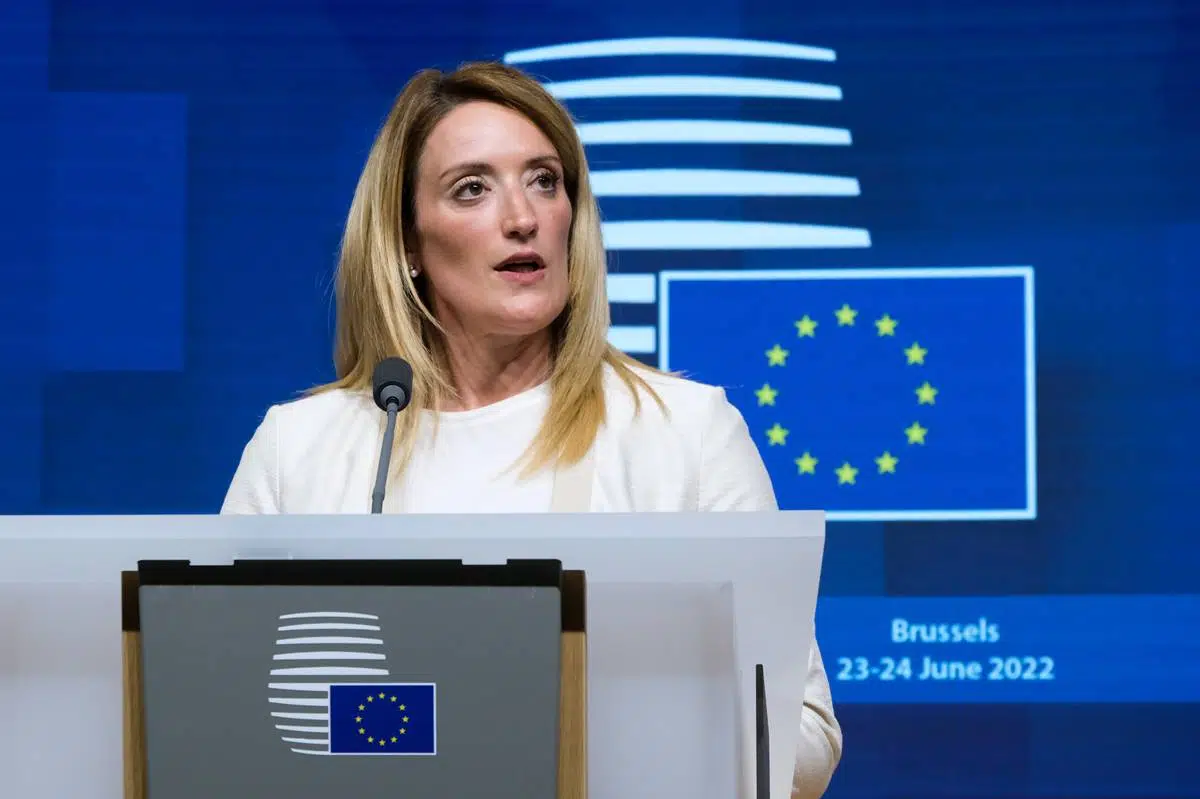Brussels – To enlarge the European Union, the EU must first be willing to reform itself. That’s a clear message from the president of the European Parliament, Roberta Metsola, today (Dec. 14) to the heads of state and government meeting in Brussels at the last European summit before the end of the year, grappling with important decisions on the accession of new countries.
A reflection will have to be made before the next European elections scheduled from June 6-9, 2024, the head of the European Parliament said in a press conference after opening the EU Summit with the traditional speech.
But this will not be the right European Summit to do so, and the European Parliament urges an in-depth discussion at the next European Council, scheduled for March 21 and 22, 2024 (net of extraordinary Councils). “If we want to be ready for enlargement, in the meantime, we have to be ready to reform ourselves. We need to accelerate the discussion about the EU of the future, how we function, and how we make decisions,” Metsola said, referring to the need to make more decisions by qualified majority instead of unanimity (as is still the case today with the budget and in foreign affairs, for example).
“The contribution of the European Parliament on reforms, which is detailed in our report on treaty change, provides a good basis for this reflection, and I hope it will be discussed at a future meeting,” she added. On November 20, the European Parliament adopted a resolution, formally taking the first steps toward opening a convention to amend the Treaties. The debate on the treaty revision and the unanimous decision-making process go hand in hand with the European enlargement debate. The greater the number of member states, the greater the possibility of blocking decisions. Increased use of qualified majority voting, the right of legislative initiative, and the institutionalization of the ‘Spitzenkandidaten’ system to give the European Parliament the task of recommending to the European Council the name of the future head of the European Commission are some of the demands made by the Parliament.
Opening a Convention that leads to treaty reform requires 14 Member States in the Council, a simple majority that is not easy to find. The resolution allows the rotating presidency of the EU Council to formally ask governments to forward to the European Council a request (based on Article 48 TEU) to convene, after the June 2024 European elections, a convention to reform the EU’s institutional architecture. The issue was supposed to be discussed at the General Affairs Council on December 12, but the Spanish presidency decided not to do so. Therefore, the discussion will only be mentioned at today’s and tomorrow’s summit in Brussels. To be reopened at a later date.
English version by the Translation Service of Withub

![Per il momento la Bce lascia invariati i tassi di interesse [Francoforte, 14 dicembre 2023]](https://www.eunews.it/wp-content/uploads/2023/12/lagarde-231214-350x250.png.webp)
![Il presidente dell'Ucraina, Volodymyr Zelensky, in collegamento con i leader dell'UE [Bruxelles, 14 dicembre 2023. Foto: European Council]](https://www.eunews.it/wp-content/uploads/2023/12/zelensky-231214-350x250.jpeg.webp)



